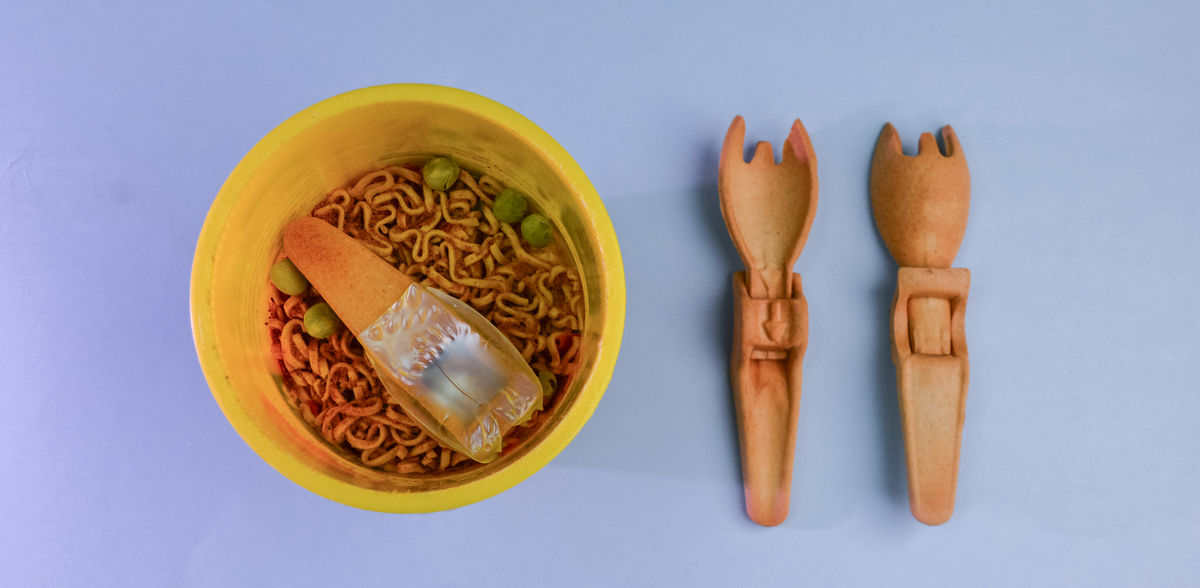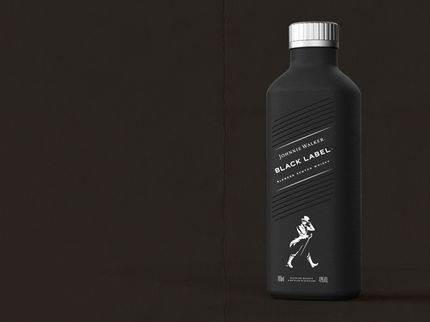Plant-based fork adds on to Nestlé's innovative packaging accessories
Advertisement
Nestlé has introduced a limited-edition plant-based fork for Maggi cup noodles in India. Nestlé food science and packaging experts at our R&D center in India collaborated with a local startup to develop a two-piece edible fork made from wheat flour and salt. The two ingredients, coupled with a proprietary fork design and manufacturing process, ensure the desired functionality while maintaining the nutritional values and taste of the noodles.
Redesigning accessories like straws, cups, or cutlery is an integral part of Nestlé's commitment to eliminate or reduce the use of plastics in packaging. This comes in addition to simplifying packaging materials, scaling reusable and refillable systems wherever possible, and exploring alternative packaging materials for different product categories.
Gerhard Niederreiter, Head of Nestlé's Institute of Packaging Sciences, says: "At Nestlé, we continuously explore different types of alternative sustainable packaging solutions that ensure food safety, consumer experience, and product taste and quality. In this case, our packaging experts developed a unique alternative fork that built on our scientific expertise across different kinds of food-grade packaging materials and shapes."
Antonia Wanner, Group Head of ESG Strategy and Deployment, explains: "Reducing packaging and designing packaging for recycling are both key pillars to Nestlé's sustainability commitments. Our teams are constantly exploring novel materials and cutting-edge technologies for packaging solutions that are convenient, protect the food inside, and are good for the planet."
In addition, Nestlé packaging experts in R&D Nutrition and China are piloting a patented paper scoop for adult milk powders in China. Thanks to the flat foldable scoop alongside a metal cap, the use of plastic could be completely avoided in this packaging design.
By 2021, Nestlé had already replaced 4.5 billion plastic straws globally with paper straws. Since then, Nestlé R&D teams are continuing to drive innovation with recyclable straws to identify alternative solutions or improve the functionalities of existing paper straws. The Nestlé Institute of Packaging Sciences has also focused significant efforts in developing new paper cups. This includes researching non-plastic coatings for paper cups that can resist hot beverages.
These are just a few recent examples to underline Nestlé's commitment to find innovative solutions to reduce the use of virgin plastics by using less plastic, recycled plastic, and alternatives to plastic packaging.
Topics
Organizations
Other news from the department business & finance

Get the food & beverage industry in your inbox
By submitting this form you agree that LUMITOS AG will send you the newsletter(s) selected above by email. Your data will not be passed on to third parties. Your data will be stored and processed in accordance with our data protection regulations. LUMITOS may contact you by email for the purpose of advertising or market and opinion surveys. You can revoke your consent at any time without giving reasons to LUMITOS AG, Ernst-Augustin-Str. 2, 12489 Berlin, Germany or by e-mail at revoke@lumitos.com with effect for the future. In addition, each email contains a link to unsubscribe from the corresponding newsletter.































































